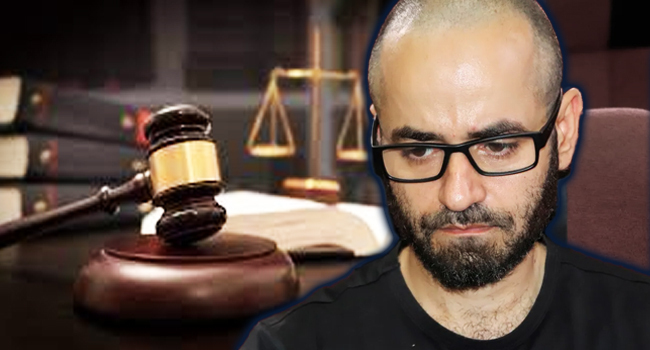THE cross examination of the First Prosecution Witness, PW1, Abdulkadir Abbas, in the ongoing trial of Binance Holdings Limited and its Executive Officer, Tigran Gambaryan, before Justice Emeka Nwite of the Federal High Court, continued on Tuesday, July 2, 2024.
The Economic and Financial Crimes Commission (EFCC) is prosecuting Gambaryan alongside Binance Holdings Ltd on a five-count charge bordering on alleged tax evasion, currency speculation and money laundering to the tune of $34,400,000.
At the resumed cross-examination on Tuesday, Abbas told the court that Binance activities did not conform to the Security and Exchange Commission (SEC)’s extant law as stipulated.
The witness said activities of any virtual assets provider or digital assets services not captured by the Security and Exchange Commission’s regulatory Act of 2007 and that any provider that didn’t pay any registration fee to the regulatory body before starting its operation in the country is not under the regulation of the SEC.
According to Abbas, the SEC makes provisions for any company wanting to engage in digital assets services to register with the body before it can commence operation in the country.
Also, he explained that the Commission requires processing, application and registration fees before the application of any entity is considered.
Additionally, he confirmed that a similar process applies to both virtual or non-virtual platform entities.
Led in evidence by the first defence counsel, Babatunde Fagbohunlu, SAN, on whether there is a provision for application, registration and processing fees to Virtual Asset Services providers, Abbas answered in the affirmative but added that there was no provision for application or registration fees for any Digital Asset Offering Platforms (DAOP) because it is generic term.
“SEC approved rules on Virtual Asset in 2022, and the rules provides for registration requirements of Digital Asset Offering Platform (DAOP), Digital Assets Exchanges (DAE), and Digital Assets Custodian (DEC )
“Each one has its own registration requirements, for instance, there is a provision for filing a fee for either Digital Assets exchange or Digital Assets Offering Platform,” he said.
When asked if there’s provision for minimum trade capital, Abbas replied thus: “Yes, there is N500 million, which is provided for minimum trade capital for either Digital Asset Offering Platform (DAOP), or Digital Assets Exchanges (DAE).”
Continuing, the second defence counsel further queried the essence of issuing rules and whether it is to guard the market or to provide clarity. Abbas explained that the SEC is mandated to make rules and regulations in proportion to the Investment and Security Act, and that the rule is meant to govern the capital market stating that the whole essence is to regulate the capital market.
When probed about his proficiency and expertise in digital assets activities, the PW1 explained that he knew digital asset activities to the best of his understanding.
“I know digital Assets to the best of my understanding and I know the context of what the rules provide for the registration of these entities”, he said. He listed the different functions of Digital Asset Offering Platform (DAOP), or Digital Assets Exchanges (DAE) and Digital Assets Custodian (DAC).
When asked why there is no registration for Virtual Assets Service providers in the rule, Abbas responded that the rule made provision for registration, which is general requirements for Virtual Assets providers but within the Virtual Assets Service providers, there are different functions.
“You can either come and apply as Digital Asset Offering Platform (DAOP), or seek registration as Digital Assets Exchanges (DAE), or Digital Assets Custodian (DAC), and that is why in that sense, we provided for registration and filing fees for those specific functions but we did not provide fees for Virtual Assets Service providers because it’s generic,” he said.
On Monday, the second defence counsel, Mark Mordi, SAN, argued that SEC’s Investment and Security Act of 2007, which is the governing law of SEC, didn’t provide for crypto-currency Assets or Virtual Assets.
But the PW1 explained that under the definition of securities, Section 315, virtual Assets is adequately covered under the item D of that Section, stressing that SEC issued a regulation, and requested all those Digital Assets Service providers or Virtual Assets service providers that are performing any kind of function, which is investment and Security business in Nigeria, should go and register with SEC.
On why SEC is providing for Virtual Assets now, the prosecution witness said because of the dynamism of the market, SEC is trying to provide more details to the existing law, which is the Investment Security Act.
According to him, SEC went further to issue guidelines on what the Commission called accelerated regulatory incubation programme adding that in that it was clearly spelt out the type of functions that one is carrying out.
“If you are issuing Digital Asset of Virtual Assets or if you are trading crypto-currency as security, as defined in our law or in the guideline, you will be regulated by SEC,” he said.







